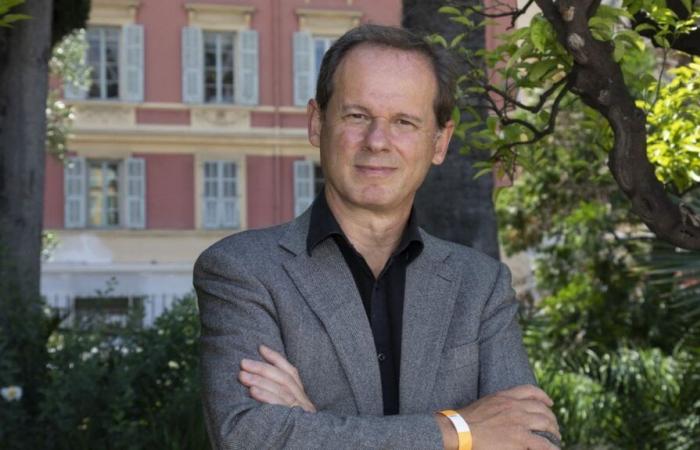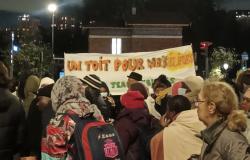
José Rodrigues dos Santos is a journalist, star presenter of the 8 p.m. news in Portugal and was a war reporter for more than 25 years. He is also a writer with his successes at the top of God’s formula and the saga of Tomás Noronha translated into 18 languages. Today, he publishes in France Forgotten published by Hervé Chopin, already published 20 years ago in Portugal. It is the story of Afonso and through him, of very emblematic figures of Portuguese soldiers who were totally abandoned, in the trenches of Flanders during the First World War.
franceinfo: It’s more than a historical novel, it’s also an enormous tribute, an enormous declaration of love that you make to your two grandfathers. On one side, the maternal grandfather, Corporal Raul Compostetinho, who was gassed during the war, and your paternal grandfather, Captain José Rodrigues dos Santos. Was it also a way of telling the real story, of telling your own story?
José Rodrigues dos Santos: There’s a little bit of that, and at the same time, it’s more than that. Every family in Portugal was affected by the Great War, because everyone has someone in their family who was there. And the strange thing is that my book, which was originally published in 2004, 20 years ago, was the first novel ever published in Portugal about the Great War. It’s really a forgotten subject even though it’s a huge event that affected all families. However, we didn’t talk about it. And it’s a whole human story that needed to be told to refresh memories because it is ignored.
“The Portuguese were in the Great War and people here don’t know it. They played a role in ending it with the battle of April 9, 1918.”
José Rodrigues dos Santosat franceinfo
There is a side In the West, nothing new by Erich Maria Remarque, that is to say that you offer us the opportunity to put ourselves in the soldier’s place. You say that it is very difficult for a soldier to live with letters from civilians who are several tens of kilometers, even hundreds of kilometers from the battlefield. It’s very difficult to tell what’s really happening until you’re on the battlefield and therefore at the front.
Yes, because everyone talks about heroes, heroism, courage, but that doesn’t exist when we’re in battle. I’ve been to battlefields as a war reporter and you see it’s not a question of courage. When we talk about courage, these are images that we have created with cinema. War is completely different, much more horrible. People often ask me: “But you go where there is war, you go to Ukraine, do you like that? Aren’t you afraid?“But if I am very afraid, only a madman or an unconscious person is not afraid of such a thing. The soldiers of the Great War talked about that. There is no heroism, there is no has no courage.
When you look closely, Afonso knew that life was a long uncertain river, a theater of illusions. You write: “a double set of mirrors, but for him, everything always had meaning“. Is that a bit like you?
Yes, indeed. I reread the book 20 years later and noticed that all the subjects of my work are already present in that book. William Somerset Maugham, the great British writer born in Paris, once said: “All writers tell the same story“. And when I read this sentence, I asked myself: but what is the story that I tell in each of my novels? And indeed, it is a quest for the meaning of life and we find it in the trenches in Forgottenbut also in all the other novels, God’s formula, Immortal, Divine fury, The Ultimate Secret of Christ, Spinoza, the man who killed God.
“In each of my novels, I touch on the same subject: the quest to know why we exist, what is the meaning of our existence.”
José Rodrigues dos Santosat franceinfo
Is writing a vital need?
For me, writing and I think for all journalists, it’s like breathing, it’s a natural thing. So when people say: “Oh, writing is hard“, but I don’t understand why, because obviously I’m used to it, it’s part of my life. And so, I can’t imagine my life without writing and without reading. These are things that are linked and it’s is truly like the air we breathe.
This book ends ten years after 1918. Afonso has grown up. He thinks of all those he saw die, especially his traveling companions. He is convinced that the dream allows him to continue to communicate with the afterlife. Is this something you feel? Is that what dreams are also used for?
Yes, the dream is the illusion. I remember one day with José Saramago, the Portuguese writer who won the Nobel Prize, and we were talking about the end of novels. And he said to me: “Well, my novels never end very well“, which is also the case with mine, “you know why? Because life never ends well, it ends with our death“. And that’s it, life never ends in a pretty way and we need dreams to forget that.





